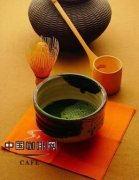Research on the benefits of drinking coffee shows that drinking coffee in moderation is good for your health

Researchers at Kuopio University in Finland and Karolinska Institute in Stockholm, Sweden, said in a recent press release that assuming global coffee consumption is high, the results may have important implications for preventing or delaying the onset of dementia/Alzheimer's disease. The findings need to be confirmed by other studies, but it opens the door to dietary interventions that may alter the risk of dementia/Alzheimer's and may help in the latest treatments for these diseases.
Drinking moderate amounts of coffee at a young age can reduce the risk of dementia and Alzheimer's disease in old age, new research suggests. Finnish and Swedish researchers examined records of coffee drinking habits of 1409 participants in middle age.
Researchers reported earlier this year in the Journal of Alzheimer's Disease that people who drank three to five cups of coffee a day in middle age were less likely to develop dementia and Alzheimer's disease over a follow-up period of more than 20 years.
Those who drank the most coffee a day had the highest total cholesterol and smoking rates in middle age, and those who drank less coffee had the highest rates of dementia and Alzheimer's disease in later life, as well as the highest depression index. Kivipelto said their goal was to study the association between drinking tea and coffee in middle age and the risk of dementia and Alzheimer's disease later in life, because whether caffeine has long-term effects on the central nervous system is still unknown, and the pathological processes leading to Alzheimer's disease begin decades before the disease is clinically confirmed.
In the study, participants in middle age (average age 50) were asked how much coffee they drank in 1972, 1977, 1982, and 1987, and then divided into three groups: those who drank a small amount of coffee (zero to two cups per day), moderate coffee (three to five cups), and heavy coffee (more than five cups per day).
Among the participants, 15.9 percent drank a small amount of coffee, 45.6 percent moderate coffee, and 38.5 percent heavy coffee; on average, 1409 people aged 65 to 79 were retested 21 years later, for a total of 61 classified as dementia and 48 Alzheimer's.
The results showed that coffee drinkers had a lower risk of dementia and Alzheimer's disease in middle age than those who drank little or no coffee, and moderate coffee drinkers had the lowest risk, the researchers noted, with moderate coffee drinkers reducing their risk of dementia by 65 to 70 percent and Alzheimer's disease by 62 to 64 percent compared with those who drank little coffee.
The researchers note that coffee drinking improves cognitive performance, caffeine reduces the risk of Parkinson's disease, and it's unclear how much coffee is needed to prevent dementia, but coffee drinking is also associated with a reduced risk of type 2 diabetes, a risk factor for dementia, and the researchers speculate that the effect may be related to coffee's antioxidant capacity in the blood.
Studies have also shown that drinking tea is not associated with a reduced risk of dementia or Alzheimer's disease.
Important Notice :
前街咖啡 FrontStreet Coffee has moved to new addredd:
FrontStreet Coffee Address: 315,Donghua East Road,GuangZhou
Tel:020 38364473
- Prev

Which is the best deoiling effect, coffee or tea?
Reader: sometimes eating too greasy feels very uncomfortable, some people say that drinking strong tea can relieve greasy, some people say that drinking coffee can relieve greasy, so which is more able to solve greasy ah? Do the alkaloids in tea and some substances in coffee have an effect on the digestive tract? Netizens explained: scientific Squirrel member True Land Bird believes that if the food mass in the stomach is high in fat, it will generally promote the stomach.
- Next

Coffee can't eat coffee with fast food + fast food is harmful to your health.
In order to save time and trouble, many busy office workers tend to speed up their coffee for lunch, which is actually twice as harmful to blood sugar. Eating fast food high in saturated fat while drinking coffee has a worse effect on blood sugar than not drinking coffee. Usually, a healthy person after a high-fat meal, their blood sugar level will rise to the highest, if high fat plus caffeine, will make blood sugar water
Related
- Beginners will see the "Coffee pull flower" guide!
- What is the difference between ice blog purified milk and ordinary milk coffee?
- Why is the Philippines the largest producer of crops in Liberia?
- For coffee extraction, should the fine powder be retained?
- How does extracted espresso fill pressed powder? How much strength does it take to press the powder?
- How to make jasmine cold extract coffee? Is the jasmine + latte good?
- Will this little toy really make the coffee taste better? How does Lily Drip affect coffee extraction?
- Will the action of slapping the filter cup also affect coffee extraction?
- What's the difference between powder-to-water ratio and powder-to-liquid ratio?
- What is the Ethiopian local species? What does it have to do with Heirloom native species?

